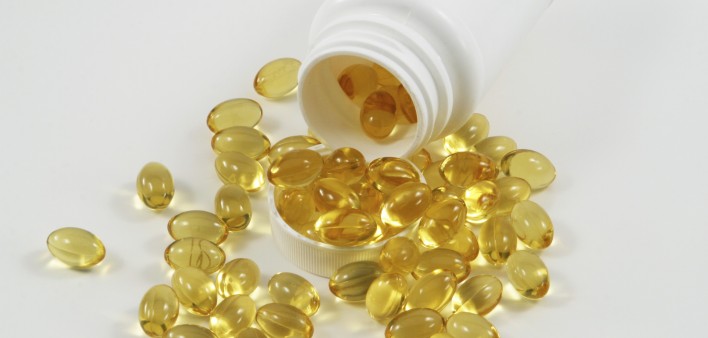People with HIV who have an undetectable viral load thanks to antiretroviral (ARV) treatment who take omega-3 fatty acid supplements over the long term may reduce both their triglycerides and an indicator of inflammation, aidsmap reports.
Researchers conducted a randomized, placebo-controlled trial of 117 people on stable ARV treatment for HIV who had elevated triglycerides—a fasting level between 150 and 2,500 milligrams per deciliter or a random level greater than 200 mg/dL. Ninety-five percent of the participants had an undetectable viral load.
Results were presented at the IDWeek 2016 conference in New Orleans.
The participants were randomized to receive 4 grams per day of omega-3 fatty acids or a placebo.
Thirty-three people were lost to follow-up, so the researchers analyzed 43 people who received the supplement and 40 who received the placebo.
Twenty-four weeks into the study, the median triglyceride level had fallen by 68 mg/dL among those in the supplement group and by 22 mg/dL in those who received the placebo.
Looking at the inflammation biomarker C-reactive protein (CRP), researchers found that 24 months into the study it had declined significantly among those who received the supplement, by a median 0.3 milligrams per liter, compared with an increase of 0.6 mg/L in those receiving the placebo.
The omega-3 fatty acids proved generally safe and well tolerated.
To read the aidsmap article, click here.







1 Comment
1 Comment